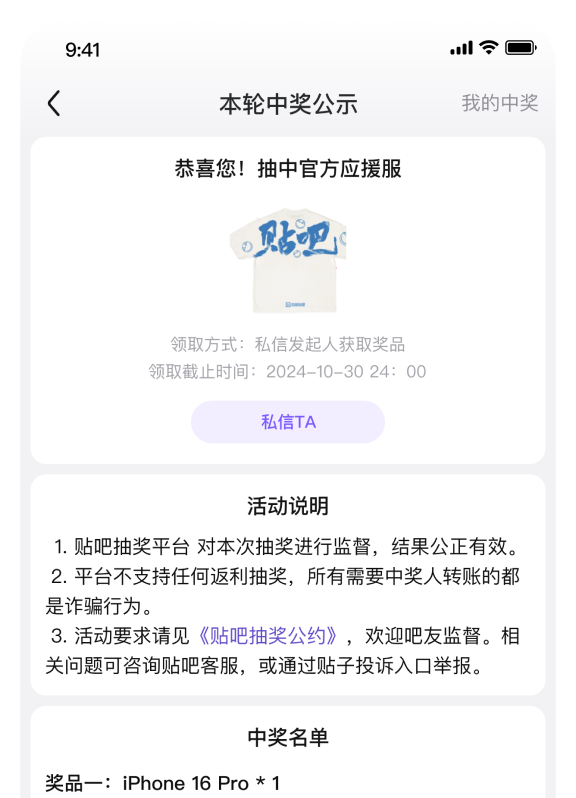The British in particular are becoming more creative.
尤其是英国人,正在变得越来越有创造性。
注释:
in particular表示“尤其,特别”,强调特指你所说的某个人或者某个物品。如果你想说,没什么重要的、没什么特别的,就可以说nothing/nobody in particular。
我们也可以用particularly或者especially来表示“尤其,特别,格外”,那么,这几个词之间有什么区别呢?
在表示“尤其,特别”的时候,particularly的意思和in particular更接近,均指所述尤其适用于某一样事物,其中in particular还可用于指人,比如“尤其是他的学生”,his student in particular,而particularly只用于事物或形势。expecially则强调,和其他人或事情比起来,所说的话更适用于某一个人、某一件事或某个区域,比如说,游泳的时候尤其要注意补涂防晒霜,especially if you have been swimming。
表示“格外”时,particularly指异乎寻常地,或是有别于其他事物地,比如说,情况格外令人失望,或者,我格外喜欢木制品。而expecially的“格外”强调的是某种特质,比如刚出生的婴儿特别容易感冒。
You use in particular to indicate that what you are saying applies especially to one thing or person.
——————————————————————————
We’re all passive in the face of adversity.
面对逆境,我们都是被动的。
注释:
in the face of表示“面对,在……面前”,尤其是指面对问题或困境。有个比较相似的短语,on the face of it,表示“乍看起来”,注意不要弄混了。
表示“面对,面临”时,我们还可以用face to face with something,比如困难或现实,比如,“我渐渐开始面对这个事实……”,“I was gradually being brought to face with the fact that…”。face一词本身也可以表示“面对”,而confront更强调“勇敢地面对、正视”某种困境或问题。
If you take a particular action or attitude in the face of a problem or difficulty, you respond to that problem or difficulty in that way.
——————————————————————————
TV must adapt to viewer demand.
电视必需适应观众需求。
注释:
adapt to表示“适应”,也可以用adapt yourself to,后接某种形势。如果我们说adapt something,则可指“使适应,使适合”,比如某种新用途或者新情况。此外,adapt一词还可表示“改写,改编”,比如小说改编成电影,就可以说adapt novel for the screen。
表示“适应”时,我们还常用到fit,suit,adjust,accommodate等等。其中,fit是广义词,指人或物适合或适应某种目的或用途;suit指符合某种需要,合人的心意;adjust和adapt类似,但前者的改变幅度会小一些,侧重过程;accommodate是书面用语,指以外部条件为标准改变自己或某事以适应,着重的是改变本身,或者改变的益处;adapt则是指人或物在原有的情况下做某些改变,以适应新的环境或者不同的条件,强调的是改变的目的和重要性。
If you adapt to a new situation or adapt yourself to it, you change your ideas or behaviour in order to deal with it successfully.
——————————————————————————
Please give us a good case in point.
请为我们举一个恰当的例子。
注释:
a case in point表示“典型的例子,恰当的例子”,所提及的事物是对你刚刚说述内容的极好补充。下次这么说的时候,就可以不用typical,classic,good,appropriate这样的单词了。
If you say that something is a case in point, you mean that it is a good example of something you have just mentioned.
——————————————————————————
The book is out of stock.
这本书已经卖完了。
注释:
out of stock指“缺货,脱销”,相对的,有货也就是in stock。如果我们想描述脱销的这本书,就可以说the out-of-stock book,缩写为OOS,或者我们可以用stockout,表示“无存货,缺货”。
如果我们不知道这些说法,但想表示某样商品缺货了,就可以说be in short supply,强调“供应不足”,数量很少,很难找到或获取。或者我们可以说,sell out,表示全部都卖完了,所以本句还可表述为:“The book is in short supply/sold out.”,或者,“We sold out of the book.”。
If goods are in stock, a shop has them available to sell. If they are out of stock, it does not.
尤其是英国人,正在变得越来越有创造性。
注释:
in particular表示“尤其,特别”,强调特指你所说的某个人或者某个物品。如果你想说,没什么重要的、没什么特别的,就可以说nothing/nobody in particular。
我们也可以用particularly或者especially来表示“尤其,特别,格外”,那么,这几个词之间有什么区别呢?
在表示“尤其,特别”的时候,particularly的意思和in particular更接近,均指所述尤其适用于某一样事物,其中in particular还可用于指人,比如“尤其是他的学生”,his student in particular,而particularly只用于事物或形势。expecially则强调,和其他人或事情比起来,所说的话更适用于某一个人、某一件事或某个区域,比如说,游泳的时候尤其要注意补涂防晒霜,especially if you have been swimming。
表示“格外”时,particularly指异乎寻常地,或是有别于其他事物地,比如说,情况格外令人失望,或者,我格外喜欢木制品。而expecially的“格外”强调的是某种特质,比如刚出生的婴儿特别容易感冒。
You use in particular to indicate that what you are saying applies especially to one thing or person.
——————————————————————————
We’re all passive in the face of adversity.
面对逆境,我们都是被动的。
注释:
in the face of表示“面对,在……面前”,尤其是指面对问题或困境。有个比较相似的短语,on the face of it,表示“乍看起来”,注意不要弄混了。
表示“面对,面临”时,我们还可以用face to face with something,比如困难或现实,比如,“我渐渐开始面对这个事实……”,“I was gradually being brought to face with the fact that…”。face一词本身也可以表示“面对”,而confront更强调“勇敢地面对、正视”某种困境或问题。
If you take a particular action or attitude in the face of a problem or difficulty, you respond to that problem or difficulty in that way.
——————————————————————————
TV must adapt to viewer demand.
电视必需适应观众需求。
注释:
adapt to表示“适应”,也可以用adapt yourself to,后接某种形势。如果我们说adapt something,则可指“使适应,使适合”,比如某种新用途或者新情况。此外,adapt一词还可表示“改写,改编”,比如小说改编成电影,就可以说adapt novel for the screen。
表示“适应”时,我们还常用到fit,suit,adjust,accommodate等等。其中,fit是广义词,指人或物适合或适应某种目的或用途;suit指符合某种需要,合人的心意;adjust和adapt类似,但前者的改变幅度会小一些,侧重过程;accommodate是书面用语,指以外部条件为标准改变自己或某事以适应,着重的是改变本身,或者改变的益处;adapt则是指人或物在原有的情况下做某些改变,以适应新的环境或者不同的条件,强调的是改变的目的和重要性。
If you adapt to a new situation or adapt yourself to it, you change your ideas or behaviour in order to deal with it successfully.
——————————————————————————
Please give us a good case in point.
请为我们举一个恰当的例子。
注释:
a case in point表示“典型的例子,恰当的例子”,所提及的事物是对你刚刚说述内容的极好补充。下次这么说的时候,就可以不用typical,classic,good,appropriate这样的单词了。
If you say that something is a case in point, you mean that it is a good example of something you have just mentioned.
——————————————————————————
The book is out of stock.
这本书已经卖完了。
注释:
out of stock指“缺货,脱销”,相对的,有货也就是in stock。如果我们想描述脱销的这本书,就可以说the out-of-stock book,缩写为OOS,或者我们可以用stockout,表示“无存货,缺货”。
如果我们不知道这些说法,但想表示某样商品缺货了,就可以说be in short supply,强调“供应不足”,数量很少,很难找到或获取。或者我们可以说,sell out,表示全部都卖完了,所以本句还可表述为:“The book is in short supply/sold out.”,或者,“We sold out of the book.”。
If goods are in stock, a shop has them available to sell. If they are out of stock, it does not.





